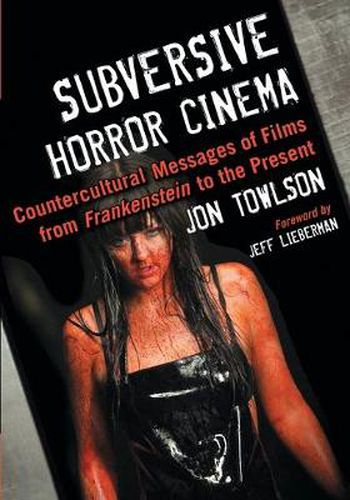Readings Newsletter
Become a Readings Member to make your shopping experience even easier.
Sign in or sign up for free!
You’re not far away from qualifying for FREE standard shipping within Australia
You’ve qualified for FREE standard shipping within Australia
The cart is loading…






This title is printed to order. This book may have been self-published. If so, we cannot guarantee the quality of the content. In the main most books will have gone through the editing process however some may not. We therefore suggest that you be aware of this before ordering this book. If in doubt check either the author or publisher’s details as we are unable to accept any returns unless they are faulty. Please contact us if you have any questions.
Horror cinema flourishes in times of ideological crisis and national trauma - the Great Depression, the Cold War, the Vietnam era, post-9/11; this book argues that a succession of filmmakers working in horror - from James Whale to Sylvia Soska - have used the genre, and the shock value it affords, to challenge the status quo during these times. Spanning the decades from the 1930s onwards this critical text examines the work of producers and directors as varied as George A. Romero, Pete Walker, Michael Reeves, Herman Cohen, Wes Craven and Brian Yuzna - and the ways in which films like Frankenstein (1931), Cat People (1942), The Woman (2011) and American Mary (2012) can be considered subversive.
$9.00 standard shipping within Australia
FREE standard shipping within Australia for orders over $100.00
Express & International shipping calculated at checkout
This title is printed to order. This book may have been self-published. If so, we cannot guarantee the quality of the content. In the main most books will have gone through the editing process however some may not. We therefore suggest that you be aware of this before ordering this book. If in doubt check either the author or publisher’s details as we are unable to accept any returns unless they are faulty. Please contact us if you have any questions.
Horror cinema flourishes in times of ideological crisis and national trauma - the Great Depression, the Cold War, the Vietnam era, post-9/11; this book argues that a succession of filmmakers working in horror - from James Whale to Sylvia Soska - have used the genre, and the shock value it affords, to challenge the status quo during these times. Spanning the decades from the 1930s onwards this critical text examines the work of producers and directors as varied as George A. Romero, Pete Walker, Michael Reeves, Herman Cohen, Wes Craven and Brian Yuzna - and the ways in which films like Frankenstein (1931), Cat People (1942), The Woman (2011) and American Mary (2012) can be considered subversive.